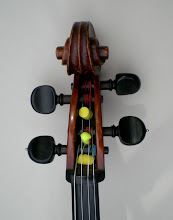The music is by Quantz (our token "Q") a specialist in baroque flute. He wrote masses of flute music and a huge tome on playing flute, and many other things, which we will quote from.
The "R"s are Rossini, a man who appreciated life. He spent the first half of his life writing music (Barber of Seville and other comic operas) and the second half of his life wining and dining and enjoying. Also Rameau (a chicken piece for solo harpsichord, and a chamber piece) Rosenmüller, Roman, and Reina ( a gorgeous little gem played by 2 cellos and harpsichord).
Hope to see you there!
Sebastopol Center for the Arts...music room....6780 Depot Street...just down from Screaming Mimi's Ice Cream.


